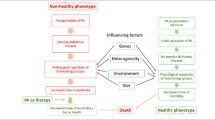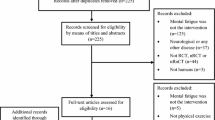Abstract
Purpose To summarize progress of functional capacity evaluation (FCE) research based on the proceedings of the Fourth International FCE Research Conference held in Switzerland on September 21 and 22, 2018. Methods A scientific committee identified key issues in FCE research and developed the program including key note presentations, a call for abstracts, and round table discussions over 2 days. Highlights of the presentations and discussions are summarized in this article. Results Seventy-nine participants from 11 countries attended the conference where 10 keynote lectures and 21 abstracts were presented. There was also an open discussion regarding the need for an International FCE clinical practice guideline (CPG), methods for developing such a guideline, and practical next steps. Full program details and abstracts from this Fourth International FCE Research Conference are available from https://www.sar-reha.ch/interessengemeinschaften/ig-ergonomie.html. Conclusions Researchers and clinicians continue to increase the body of knowledge in the FCE field. A major finding of this conference is the diversity across the different FCE protocols and research groups as well as of the different uses of FCE across cultural and social economic systems. Next steps will include exploring the development of an international, interdisciplinary, evidence-based FCE clinical practice guideline by a committee formed at the conference.
Similar content being viewed by others
References
Soer R, van der Schans CP, Groothoff JW, Geertzen JH, Reneman MF. Towards consensus in operational definitions in functional capacity evaluation: a Delphi survey. J Occup Rehabil. 2008;18(4):389–400.
Reneman MF, Soer R, Gross DP. Developing research on performance- based functional work assessment: report on the first international functional capacity evaluation research meeting. J Occup Rehabil. 2013;23(4):513–515.
James CL, Reneman MF, Gross DP. Functional capacity evaluation research: report from the second international functional capacity evaluation research meeting. J Occup Rehabil. 2016;26(1):80–83.
Edelaar MJA, Gross DP, James CL, Reneman MF. Functional capacity evaluation research: report from the third international functional capacity evaluation research meeting. J Occup Rehabil. 2017;28(1):130–134.
Barth J, de Boer WE, Busse JW, Hoving JL, Kedzia S, Couban R, Fischer K, von Allmen DY, Spanjer J, Kunz R. Inter-rater agreement in evaluation of disability: systematic review of reproducibility studies. BMJ. 2017;356:j14. https://doi.org/10.1136/bmj.j14.
De Baets S, Calders P, Schalley N, Vermeulen K, Vertriest S, Van Peteghem L, Coussens M, Malfait F, Vanderstraeten G, Van Hove G, Van de Velde D. Updating the evidence on functional capacity evaluation methods: a systematic review. J Occup Rehabil. 2018;28(3):418–428.
Kaiser M, Klipstein A, Knöpfel R, Rattin U, Vallon P. Resource-oriented reintegration into the labor market other organizations and institutions. Switz Med Doct. 2019;100(26):886–888. https://doi.org/10.4414/saez.2019.17942.
Bethge M, Markus M, Streibelt M, Gerlich C, Schuler M. Implementing the German model of work-related medical rehabilitation: did the delivered dose of work-related treatment components increase? Arch Phys Med Rehabil. 2018;99(12):2465–2471.
Neuderth S, Schwarz B, Gerlich C, Schuler M, Markus M, Bethge M. Work-related medical rehabilitation in patients with musculoskeletal disorders: the protocol of a propensity score matched effectiveness study (EVA-WMR, DRKS00009780). BMC Public Health. 2016;16:804. https://doi.org/10.1186/s12889-016-3437
Streibelt M, Bethge M. Effects of intensified work-related multidisciplinary rehabilitation on occupational participation: a randomized-controlled trial in patients with chronic musculoskeletal disorders. Int J Rehabil Res. 2014;37(1):61–66.
Bühne D, Alles T, Hetzel C, et al. The prognostic validity of the functional capacity evaluation ELA in work-related medical rehabilitation. Die Rehabil. 2018;57(2):92–99.
Tüscher J, Burrus C, Vuistiner P, Léger B, Rivier G, Luthi F. Predictive value of the fear-avoidance model on functional capacity evaluation. J Occup Rehabil. 2018;28(3):513–522. https://doi.org/10.1007/s10926-017-9737-7.
Reneman MF, Roelofs M, Schiphorst Preuper HR. Reliability and agreement of neck functional capacity evaluation tests in patients with chronic multifactorial neck pain. Arch Phys Med Rehabil. 2017;98(7):1476–1479.
Hollak N, Soer R, van der Woude LH, Reneman MF. Towards a comprehensive functional capacity evaluation for hand function. Appl Ergon. 2014;45(3):686–692. https://doi.org/10.1016/j.apergo.2013.09.006.
Jacobs NW, Berduszek RJ, Dijkstra PU, van der Sluis CK. Validity and reliability of the upper extremity work demands scale. J Occup Rehabil. 2017;27(4):520–529. https://doi.org/10.1007/s10926-016-9683-9.
Cavalini MA, Berduszek RJ, van der Sluis CK. Construct validity and test-retest reliability of the revised upper extremity work demands (UEWD-R) scale. Occup Environ Med. 2017;74(10):763–768. https://doi.org/10.1136/oemed-2017-104370.
MCCabe E, Gross DP, Bulut O. Procedures to develop a computerized adaptive test to assess patient-reported physical functioning. Qual Life Res. 2018;27(9):2393–2402.
Roossien CC, Stegenga J, Hodselmans AP, Spook SM, Koolhaas W, Brouwer S, Verkerke GJ, Reneman MF. Can a smart chair improve the sitting behavior of office workers? Appl Ergon. 2017;65:355–361. https://doi.org/10.1016/j.apergo.2017.07.012.
West N, Snodgrass SJ, James C. The effect of load on biomechanics of the back and upper limb in a bench to shoulder lift during the WorkHab functional capacity evaluation. Work. 2018;59(2):201–210.
James C, MacKenzie L, Capra M. Content validity of the WorkHab functional capacity evaluation. Aust Occup Ther J. 2019;66(3):380–392. https://doi.org/10.1111/1440-1630.12565.
Melino NL, James C, Snodgrass SJ. The effect of load in a floor-to-bench lift during the WorkHab functional capacity evaluation. Work. 2014;49(4):585–596. https://doi.org/10.3233/WOR-131698.
Andersson GBJ, Cocchiarella L. Guides to the evaluation of permanent impairment. 5th ed. Chicago: American Medical Association; 2000. ISBN-10: 1579470858
Schindl M, Wassipaul S, Wagner T, Gstaltner K, Betghe M. Impact of functional capacity evaluation on patient-reported functional ability: an exploratory diagnostic before-after study. J Occup Rehabil. 2019;29(4):711–717. https://doi.org/10.1007/s10926-019-09829-2.
Schindl M, Zipko H, Wassipaul S. Is work capacity in trauma patients influenced by comorbidity. In: 15th congress of EFRR congress of the European forum for research in rehabilitation Berlin, 15–17 2019 Berlin DRV-Schriften Band 117; 533–534
van Wilgen CP, Testa M. Proceedings of pain science in motion colloquium—3rd ed. May 31st—June 2nd, University of Genoa-Campus of Savona, Italy. Giving insight in pain research of tomorrow!·May/June 2019, Volume 4, Issue 3, p e753. https://doi.org/10.1097/PR9.0000000000000753. www.painreportsonline.com
Acknowledgements
The following FCE researchers and clinicians have actively contributed to the discussion on research needs, reviewed this brief report, and agreed to be acknowledged for their contributions: T. Hornung, I.Herzog-Zwitter, A. Klipstein, R. Kunz, S. De Baets, D. van de Velde, J. Ansuategui Echeita, R. Knöpfel, M. Steibelt, T. Alles, C. Burrus, R. Berduszek, H. Huwiler, B. Tissi, C. Roossien, R Soer, R. Sellars, M.Schindl, U. Schwarzer.
Author information
Authors and Affiliations
Corresponding author
Ethics declarations
Conflict of interest
Edelaar, Oesch, Gross, James and Reneman declare they have no conflict of interest.
Ethical Approval
The scientific conference included no data collection, so ethics approval was not pursued. However, each of the studies presented at the conference had received appropriate ethical approval as required.
Additional information
Publisher's Note
Springer Nature remains neutral with regard to jurisdictional claims in published maps and institutional affiliations.
Rights and permissions
About this article
Cite this article
Edelaar, M.J.A., Oesch, P.R., Gross, D.P. et al. Functional Capacity Evaluation Research: Report from the Fourth International Functional Capacity Evaluation Research Meeting. J Occup Rehabil 30, 475–479 (2020). https://doi.org/10.1007/s10926-020-09876-0
Published:
Issue Date:
DOI: https://doi.org/10.1007/s10926-020-09876-0




